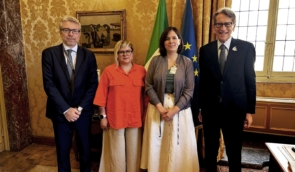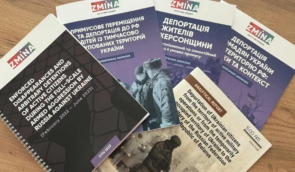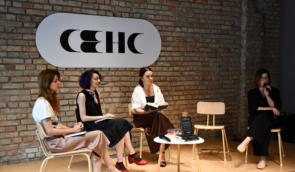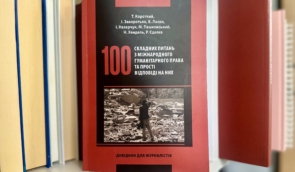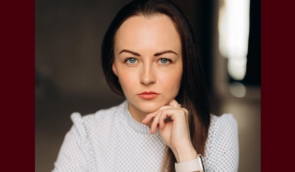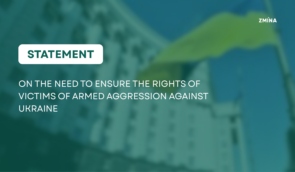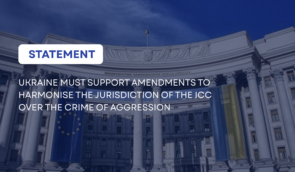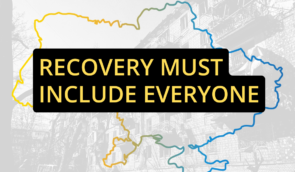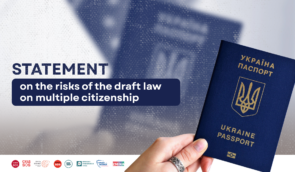22 Russian criminals who do not treat Ukrainian prisoners: list by human rights defenders
Human rights activists announced the names of 22 representatives of the occupation authorities in Crimea who refuse to provide medical treatment to Crimean political prisoners. The list includes officials whose inaction led to the death of Dzhemil Hafarov and Kostiantyn Shyring in custody.
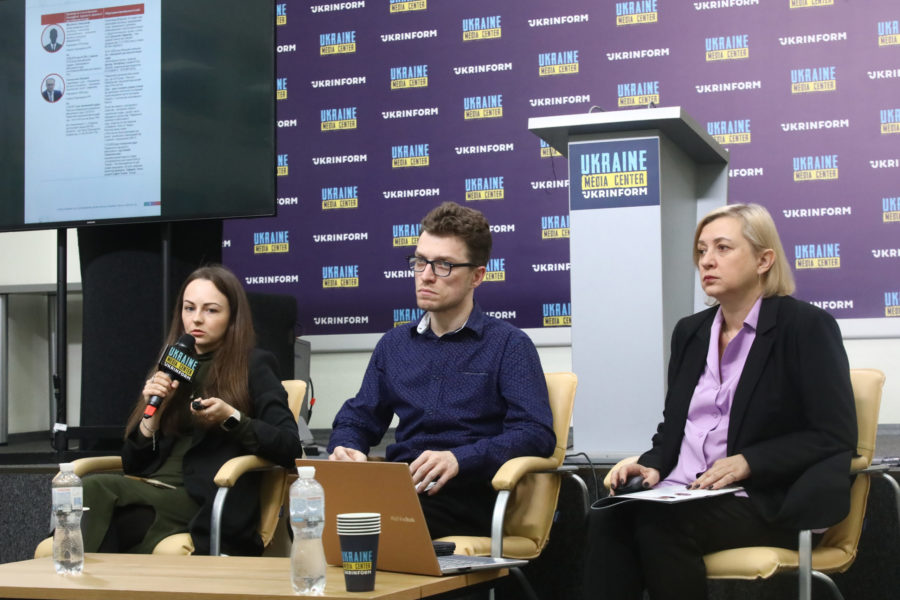
At a press conference in Kyiv on October 2, Human Rights Centre ZMINA and Crimean Human Rights Group (CHRG) presented a list of people who should be put on sanctions lists due to violation of the rights of political prisoners.
“In the report, we singled out the categories of officials who are criminals: they are judges, prosecutors, ombudsmen, heads of penal facilities and heads of medical units within the Federal Penitentiary Service of the Russian Federation. We singled out 22 officials who ignore the health status of political prisoners and do not provide them with assistance,” said ZMINA project manager Viktoria Nesterenko.
Nesterenko noted that two Ukrainian political prisoners – Dzhemil Hafarov and Kostiantyn Shyring – died in Russian prisons due to a lack of medical assistance at the beginning of 2023. They had complex chronic diseases, their health gradually deteriorated in the pre-trial detention center, but the center’s administration constantly refused to admit them to hospital and forbade them to be given medicines. Officials involved in their deaths were not held to account.
There are currently 21 political prisoners in critical condition in Russian captivity. They require immediate medical examination, qualified medical assistance, and in some cases, surgical intervention.
The human rights activist underscores: failure to provide medical assistance to people in places of detention may amount to torture. In addition, prisoners are held in terrible conditions which exacerbate chronic diseases.
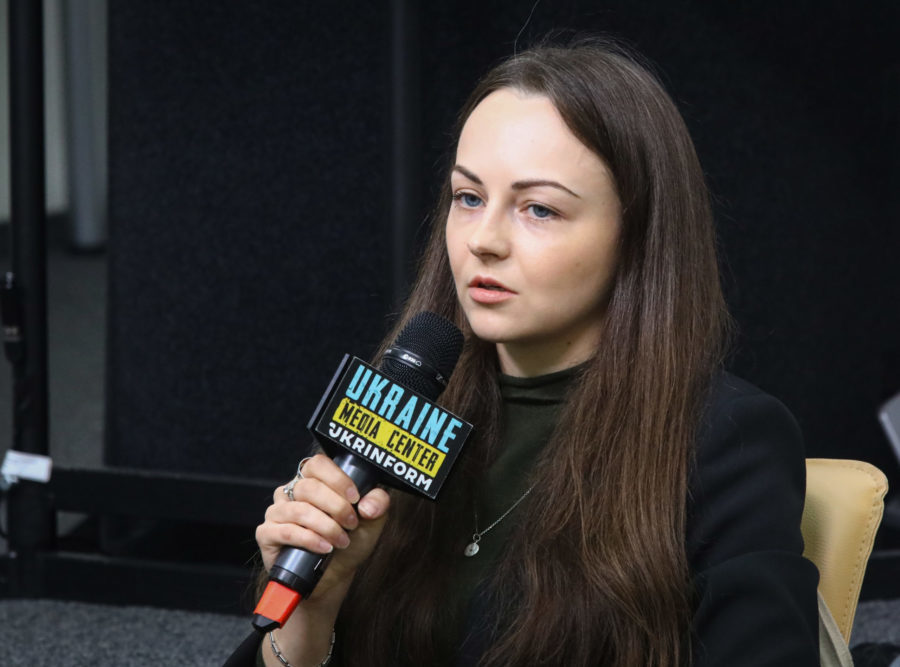 Viktoria Nesterenko
Viktoria Nesterenko“The Russian authorities do not punish officials and security officials who deliberately do not provide medical care to sick political prisoners. Moreover, they do everything possible to hide the crimes of these people. Impunity and inaction contribute to new and new crimes,” CHRG researcher Iryna Siedova believes.
The researcher announced the names of several people who, in particular, were involved in the deaths of political prisoners in custody:
- Pavlenko Pavel Vladimirovich, head of “Federal State Healthcare Institution “Medical and Sanitary Unit No. 91” of the Federal Penitentiary Service (Simferopol city)”. Human rights activists have evidence of his inaction in the case of Dzemil Hafarov.
- Bernhardt Natalia Ivanovna, major of the internal service in the Russian Federation. Involved in the failure to provide medical care to Crimean political prisoner Volodymyr Dudka when he was under investigation in the pre-trial detention center of the city of Simferopol.
- Berezhnoi Sergei Vladimirovich, head of Pre-trial Detention Center No. 1 in Simferopol. Dzhemil Hafarov, Oleh Prykhodko, Halyna Dovhopola, Iryna Danylovych, Amet Suleymanov and other Crimean political prisoners can be considered victims of improper conditions of detention in Pre-trial Detention Center No. 1.
Human rights defenders will submit information and evidence on all criminals to state authorities to open criminal cases and impose sanctions. In addition, this list will be sent to the representatives of the EU and the USA to put these persons on the sanctions lists at the international level.
“We call on the representatives of Ukraine’s authorities to do everything possible so that these criminals are put on the international sanctions lists and cannot escape punishment,” Iryna Siedova urged.
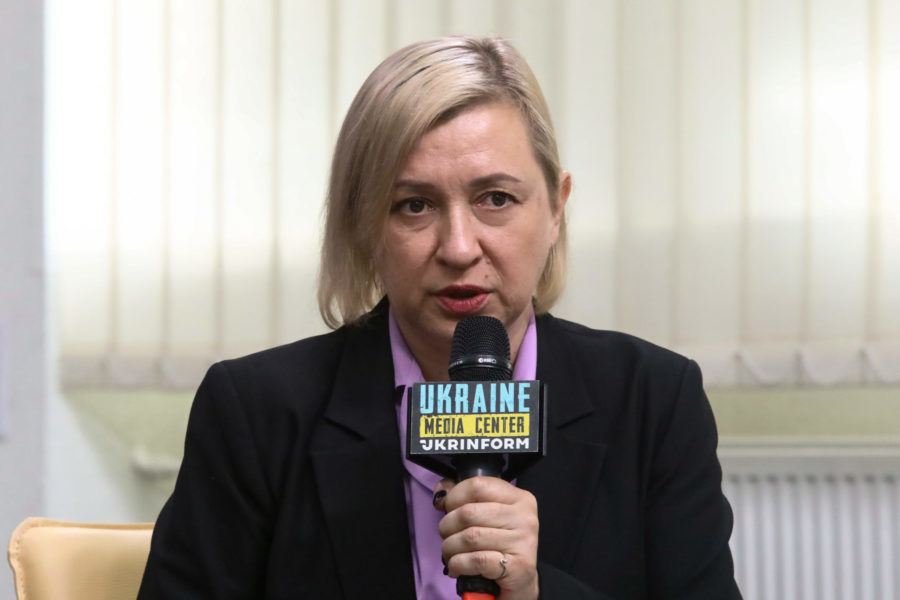 Iryna Siedova
Iryna SiedovaThe full list of Russian criminals can be found here.
Video from the presentation of the list.
The event was organized within the framework of the project “The Hafarov-Shyring list: rescue of Crimean political prisoners at risk”. The project is implemented with the financial support of the Ministry of Foreign Affairs of the Czech Republic as part of the Transition Promotion Program.
If you have found a spelling error, please, notify us by selecting that text and pressing Ctrl+Enter.

